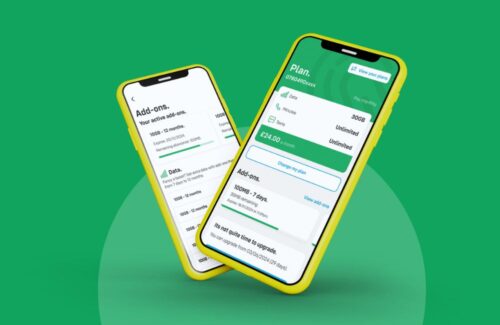Today is Safer Internet Day, an annual global initiative promoting the safe and responsbile use of technology and the internet. This is a great topic to keep yourself up to date on throughout the year for yourself and also to help children and young people ensure they are aware of how to use the internet and manage their own data and privacy. With that in mind, here are Safer Internet’s tops tips for staying safe and positive online. Feel free to share these tips or print it as handout.
For parents and carers
1. Choose to have a conversation
Talk regularly with your child about how they use technology, and find out what their digital life is like, including what their favourite sites and services are and also how being online makes them feel. Listening to your child will give you the best possible idea of how you can support them. Not sure where to begin? Have a look at Safer Internet’s suggested conversation starters for parents.
2. Choose to take a balanced approach
As parents it’s natural to feel worried about the risks posed by your child being online, but for young people the online world is exciting and fun, as it brings so many opportunities for them. Remember that your child will use technology and the internet differently given that they are growing up in a world immersed in all things digital. Try to look at both the positive and negative aspects of being online and empower your child with safe choices they can make instead of overwhelming them with restrictions.
3. Choose to make use of the tools available to you
There are lots of tools to help you manage the devices used by your family. For example, knowing how to activate and use parental controls can help protect your child from seeing inappropriate content online. For advice and guidance on how to make use of parental controls and other safety features on devices, check out Safer Internet’s free Parents’ Guide to Technology and Internet Matters’ step-by-step parental controls guides for online services.
4. Choose to get help and support
It can sometimes feel like young people are the experts in all things digital but remember – you are the life experts. You are always there to help your child but make sure you know how to get support too by visiting Safer Internet’s Need Help? page. You can take steps to support your child online by using features such as privacy settings on social media and understanding how to make a report on a range of apps, games and services.
For children and young people
1. Choose to keep personal information safe online
Always keep personal information safe online and check with an adult before you share. Personal information includes your full name, where you live and where you go to school and it can belong to you or someone you know. If someone is asking for your personal information online, then tell an adult and never agree to meet up with someone you only know online.
2. Choose to ask for consent
Always ask others before sharing something about them. If they say no, we need to respect their choice and be a good friend. This should include checking before posting a selfie of you and your friend or before adding friends into group chats where they might be people they don’t know. Remember that things which we might think are okay or funny might actually worry or upset someone else.
3. Choose to ask for help
Always tell an adult you trust if anything worries or upsets you online or you feel confused about a choice you have to make. Going online should be fun but sometimes we all need a little help and there are lots of people who can help you, like a parent, teacher or grandparent.
4. Choose to make good choices online
Every time we go online there are lots of choices we have to make. For example, which game should I play? Should I reply to that message? Should I click that button? Remember to make choices that are kind, respectful and safe and always check with an adult if you’re unsure about something online.
5. Choose to find out more
What do you know about the internet, and what does it know about you? The internet can sometimes collect information about us when we sign up to new apps and games. If you’re not sure why you are being asked for this, check with an adult first.
6. Choose to be a role model
Always be kind to others online and support your friends if they are having a difficult time. You can help your friends by showing them how to block and report in games and apps or by going to talk to a trusted adult with them.
7. Choose to talk about it
If you are not sure what to do or how to respond to something that happens online, then talk to someone about it. This could be a close friend, parent, teacher or even a helpline like Childline or The Mix.
If you have more questions or need more help with any of the above areas for your smartphone, please message the Direct Mobiles team in the Comments below on or Twitter. We’ll be happy to help.
Visit our YouTube channel Direct Mobiles TV for the latest smartphone reviews
Follow us and never miss an update…
Facebook: https://www.facebook.com/directmobilesuk
Twitter: https://twitter.com/DirectMobilesUK
Instagram: https://www.instagram.com/directmobiles/
LinkedIn: https://www.linkedin.com/company/direct-mobiles-uk/
The DMob Podcast: https://open.spotify.com/show/7mTrNvRCXWWnkGilycRL7s
Amazon Alexa: Just say “Alexa, enable Direct Mobiles” or https://amzn.to/2HiksLD








